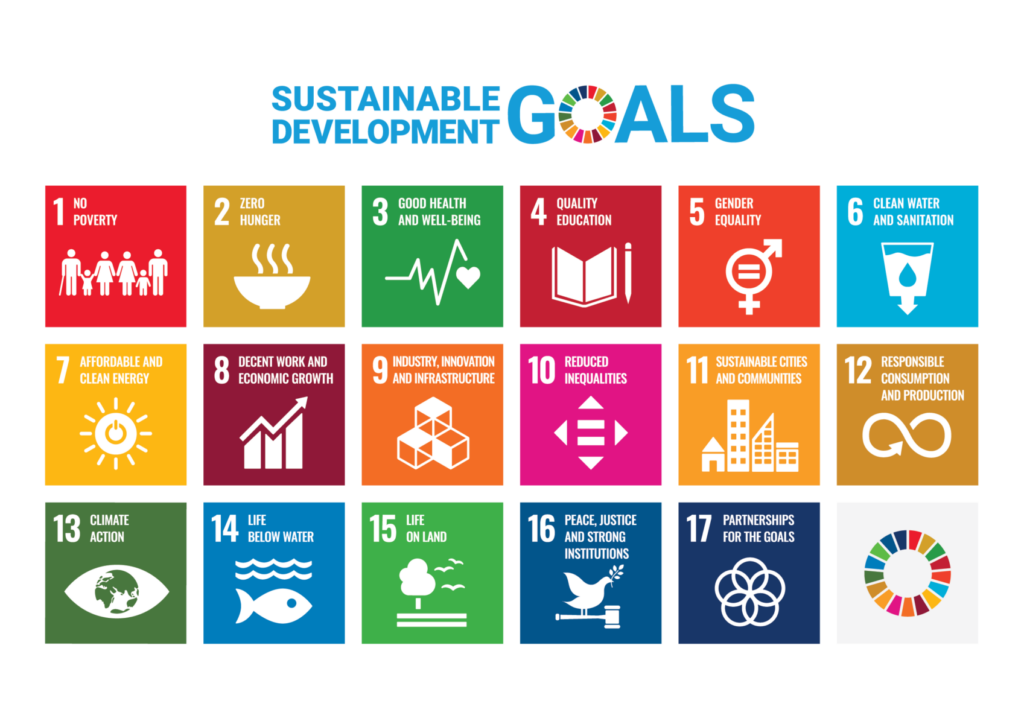
Measures against fires and other emergencies
Our buildings meet all necessary fire- and quake-resistance standards.
1. Hospitality Management in Safety and Security Training and Learning of First Aid, CPR and AED
Knowledge of First Aid, CPR and AED are very important to us. We have been taking the lifesaving skills training course regularly. Currently, half of the hotel’s staff are certified in basic First Aid.
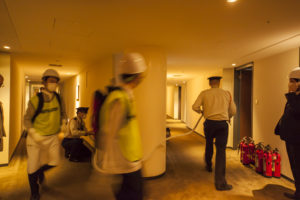
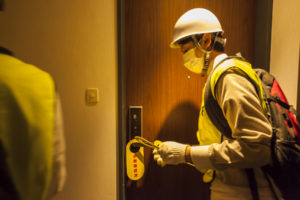
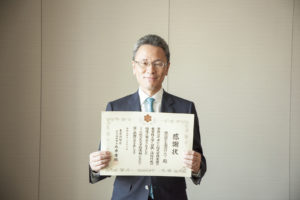
In the event of a natural or manmade disaster such as fires, earthquakes, typhoon, etc., all our staff have been trained to start firefighting procedures and to quickly and safely evacuate and rescue all guests present on premises inside the building. We have also been actively involved with the firefighting training review board for fire defense every year by the Shibuya Fire Station. In November 2019, our activities were highly praised and we were awarded the certificate of commendation from the Shibuya Fire Chief.
2. Environmental Action / Global Warming Prevention Energy Saving
We have introduced a Keycard system to control the lighting, heating and air conditioners when guest rooms are not in use. Smart control of the elevators operation from late at night to early in the morning. Building management systems have been put in place to control temperatures throughout the entire hotel, except for guest rooms.
Energy Saving Lightings
We have initiated that light must be turned off in the back space when not in use. We have introduced sensor activated lighting in the stairways. LED lighting is used at the entrance, in the hallways on the guest room floors, in some of the back spaces and in the ceilings of the 19th and 20th floors.
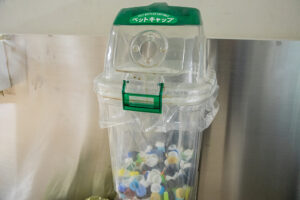
We collect used PET bottle caps and recycles them through the Eco Cap Movement, a nonprofit organization (NPO). The NPO collects bottle caps to fund vaccines for children in developing countries. To date, have donated 2,398,135 caps which have helped to provide vaccines for about 2,997 children in developing countries.
*800 caps earn 20 yen, which covers the cost of the polio vaccination for one child.
*Total sent: 2,398,135 (as of May 2024)
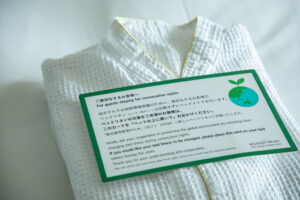
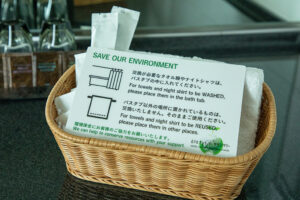
Re-use towels and other linens at guest request. Shampoo, conditioner and body soap dispensers are to be installed in all guest rooms except for the executive rooms.
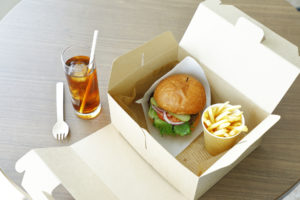
In our ongoing efforts towards helping to protect our global environment, we have been working on reducing use of plastic products. Please feel free to ask for drinking straws if needed.
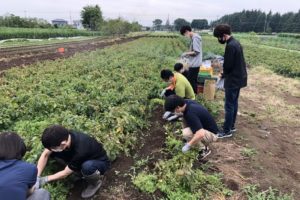

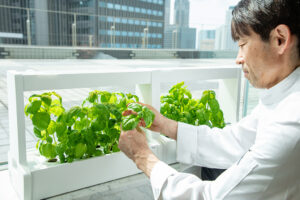
One of the main reasons why Chef Ishikawa is very particular about using vegetables grown in Tokyo is not only because of their high quality but also because of the fair reduction of CO2.
The distance food travels to get onto our plates is also known as food mileage. The greater the food mileage, more energy is demanded for transportation and storage.
In addition, starting in 2023, the hotel will use its non-operating space to grow sweet basil hydroponically with LED lighting and offer it in breads and sauces.
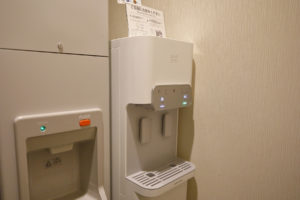
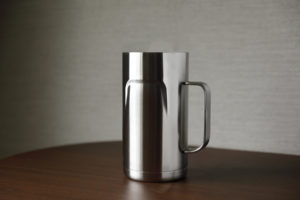
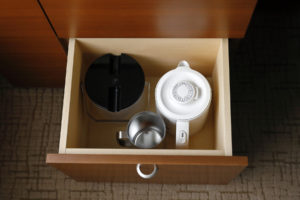
Effective November 2022, we no longer provide bottled plastic mineral water in guest rooms. We have installed Purified Water Dispensers (room temperature and cold water), which are located next to the elevators on each guest room floor. For guests’ convenience, a stainless tumbler for getting water from the dispensers is provided in each guest room.
We hope the introduction of the purified water dispensers on each guest room floor will, from the environmental perspective, help to stave off “plastic waste related marine pollution” which is to be achieved by a projected elimination of about 170,000 plastic bottles from our annual waste.
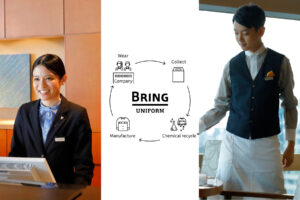
Due to the renewal of our Employee Uniforms, we have introduced “BRING UNIFORM™”, a recycling service provided by JEPLAN, in which collected old uniforms are recycled into new resources. We were commited to recycling about 690kg of our used uniforms in September, 2023.
<BRING UNIFORM> What is uniform recovery?
Uniforms are used in various scenarios, including worksites, the service industry, and in offices. The annual uniform market size in Japan exceeds 500 billion yen, with most uniforms being newly fabricated each year. This suggests that an equal number of uniforms is being discarded each year.
Company-use uniforms are generally designated as industrial waste, and so must be properly disposed of in accordance with the Waste Management and Public Cleansing Law and its related laws. However, uniforms are often fabricated under same standards, so they can be considered as apparel products suitable for recovery and recycling. BRING Uniform recovers discarded uniforms, recycles them into polyester raw materials for clothing, automobile interior materials, etc., and returns them to the market.